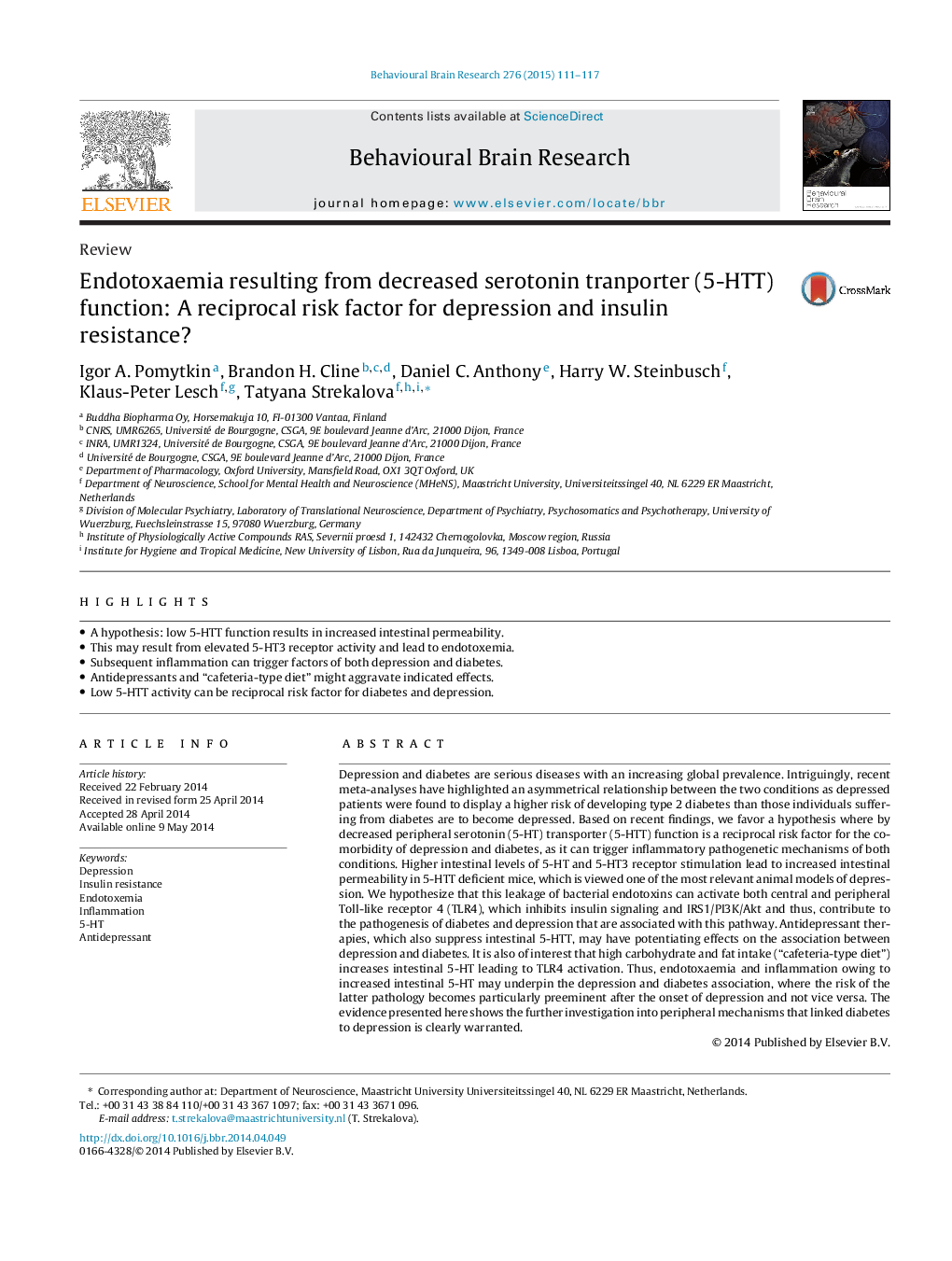| کد مقاله | کد نشریه | سال انتشار | مقاله انگلیسی | نسخه تمام متن |
|---|---|---|---|---|
| 6257437 | 1612956 | 2015 | 7 صفحه PDF | دانلود رایگان |

- A hypothesis: low 5-HTT function results in increased intestinal permeability.
- This may result from elevated 5-HT3 receptor activity and lead to endotoxemia.
- Subsequent inflammation can trigger factors of both depression and diabetes.
- Antidepressants and “cafeteria-type diet” might aggravate indicated effects.
- Low 5-HTT activity can be reciprocal risk factor for diabetes and depression.
Depression and diabetes are serious diseases with an increasing global prevalence. Intriguingly, recent meta-analyses have highlighted an asymmetrical relationship between the two conditions as depressed patients were found to display a higher risk of developing type 2 diabetes than those individuals suffering from diabetes are to become depressed. Based on recent findings, we favor a hypothesis where by decreased peripheral serotonin (5-HT) transporter (5-HTT) function is a reciprocal risk factor for the co-morbidity of depression and diabetes, as it can trigger inflammatory pathogenetic mechanisms of both conditions. Higher intestinal levels of 5-HT and 5-HT3 receptor stimulation lead to increased intestinal permeability in 5-HTT deficient mice, which is viewed one of the most relevant animal models of depression. We hypothesize that this leakage of bacterial endotoxins can activate both central and peripheral Toll-like receptor 4 (TLR4), which inhibits insulin signaling and IRS1/PI3K/Akt and thus, contribute to the pathogenesis of diabetes and depression that are associated with this pathway. Antidepressant therapies, which also suppress intestinal 5-HTT, may have potentiating effects on the association between depression and diabetes. It is also of interest that high carbohydrate and fat intake (“cafeteria-type diet”) increases intestinal 5-HT leading to TLR4 activation. Thus, endotoxaemia and inflammation owing to increased intestinal 5-HT may underpin the depression and diabetes association, where the risk of the latter pathology becomes particularly preeminent after the onset of depression and not vice versa. The evidence presented here shows the further investigation into peripheral mechanisms that linked diabetes to depression is clearly warranted.
Journal: Behavioural Brain Research - Volume 276, 1 January 2015, Pages 111-117